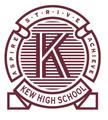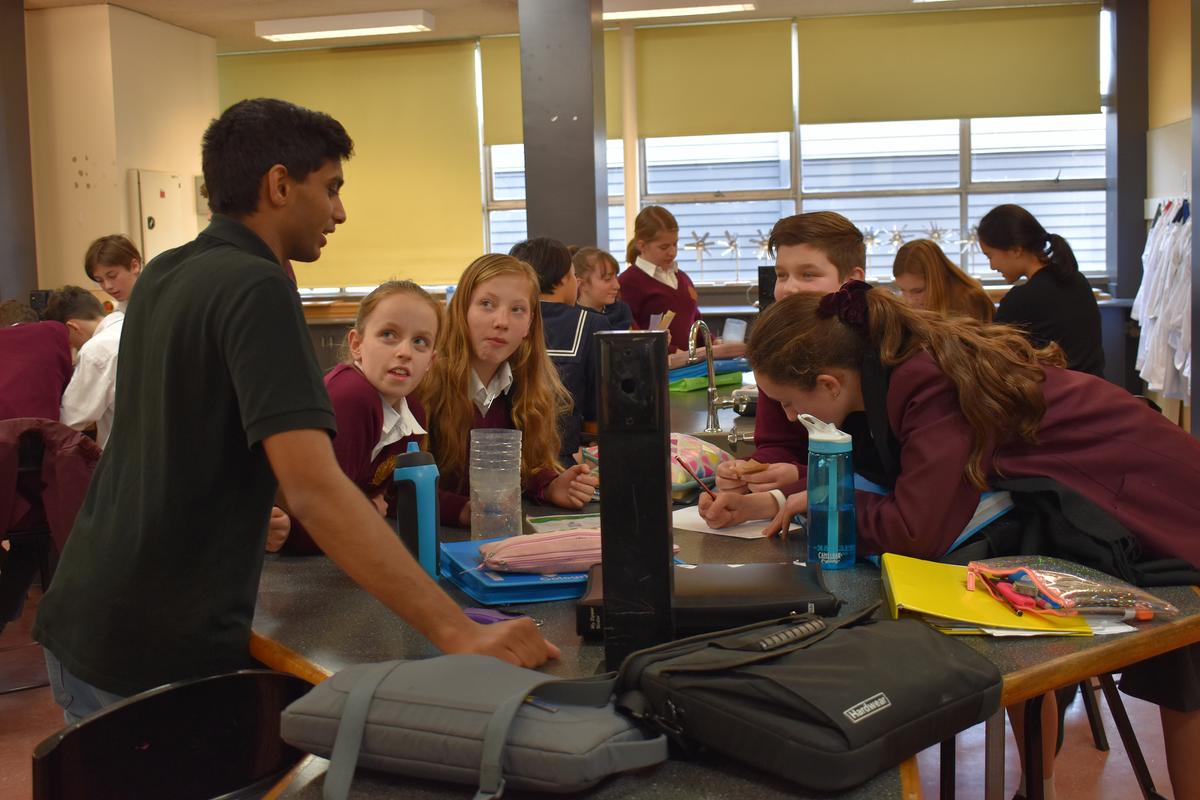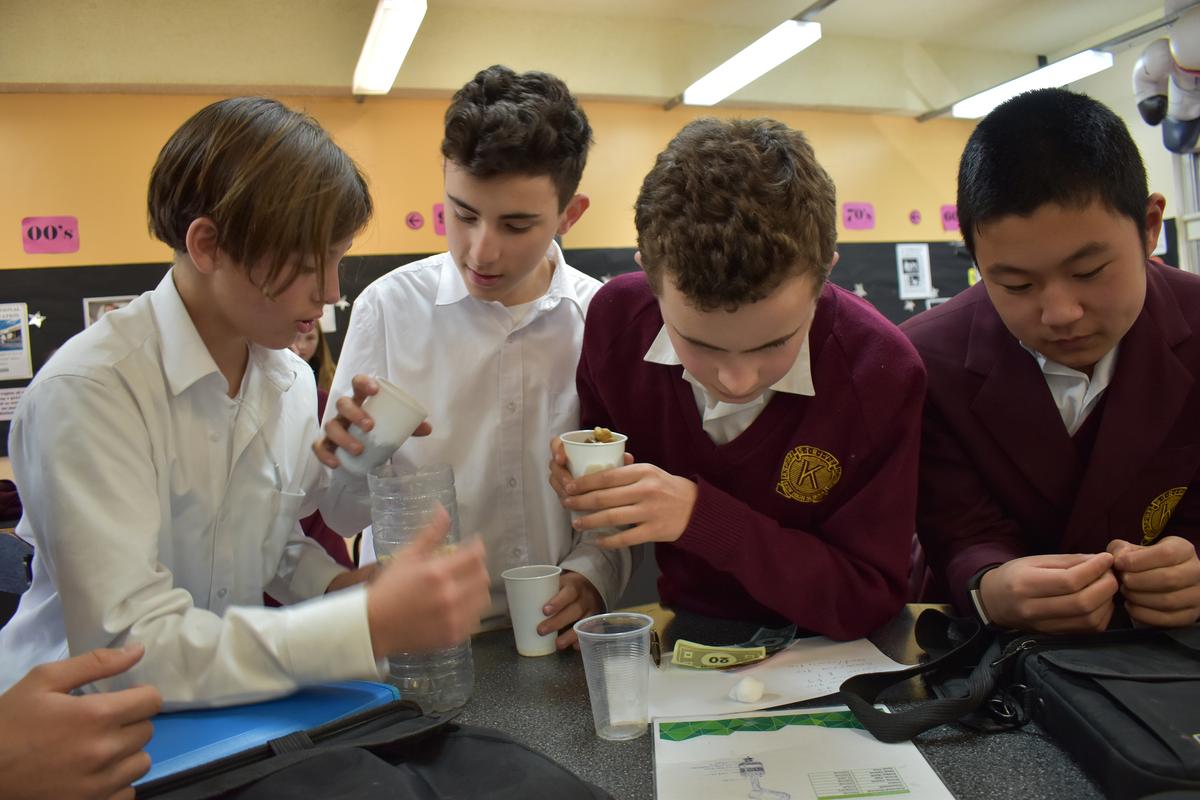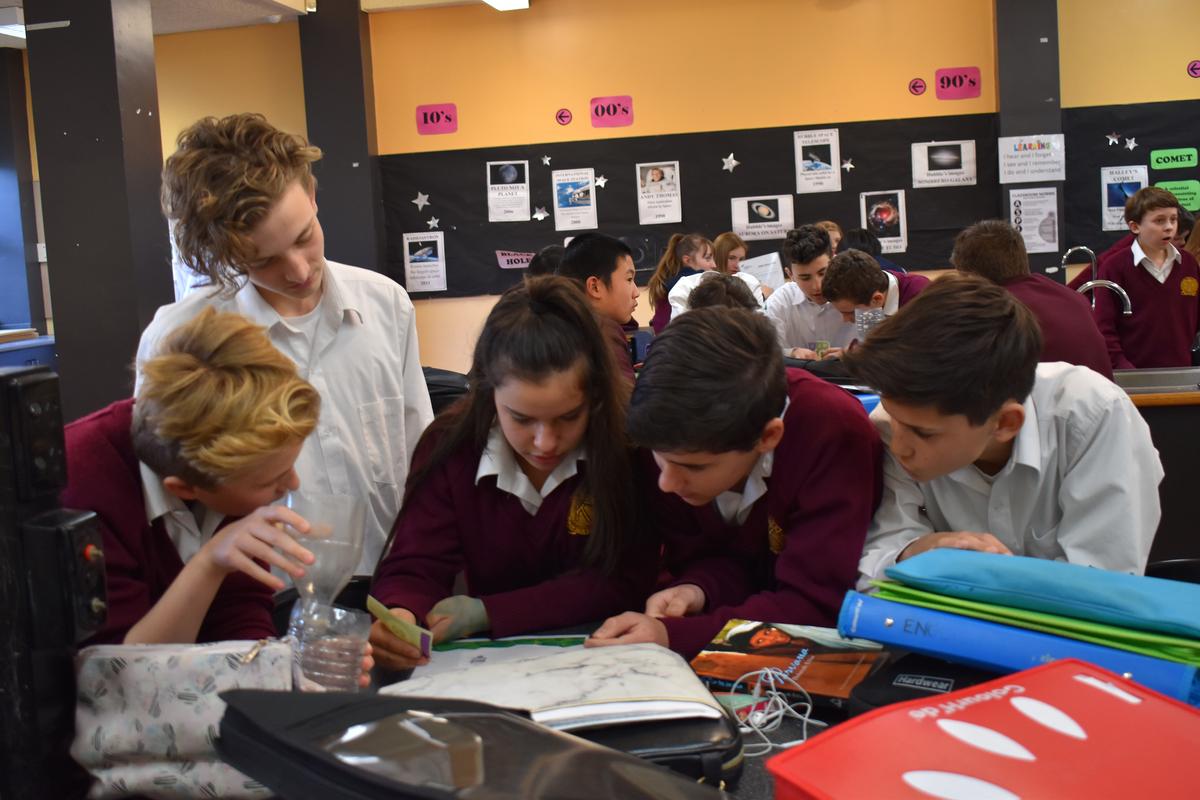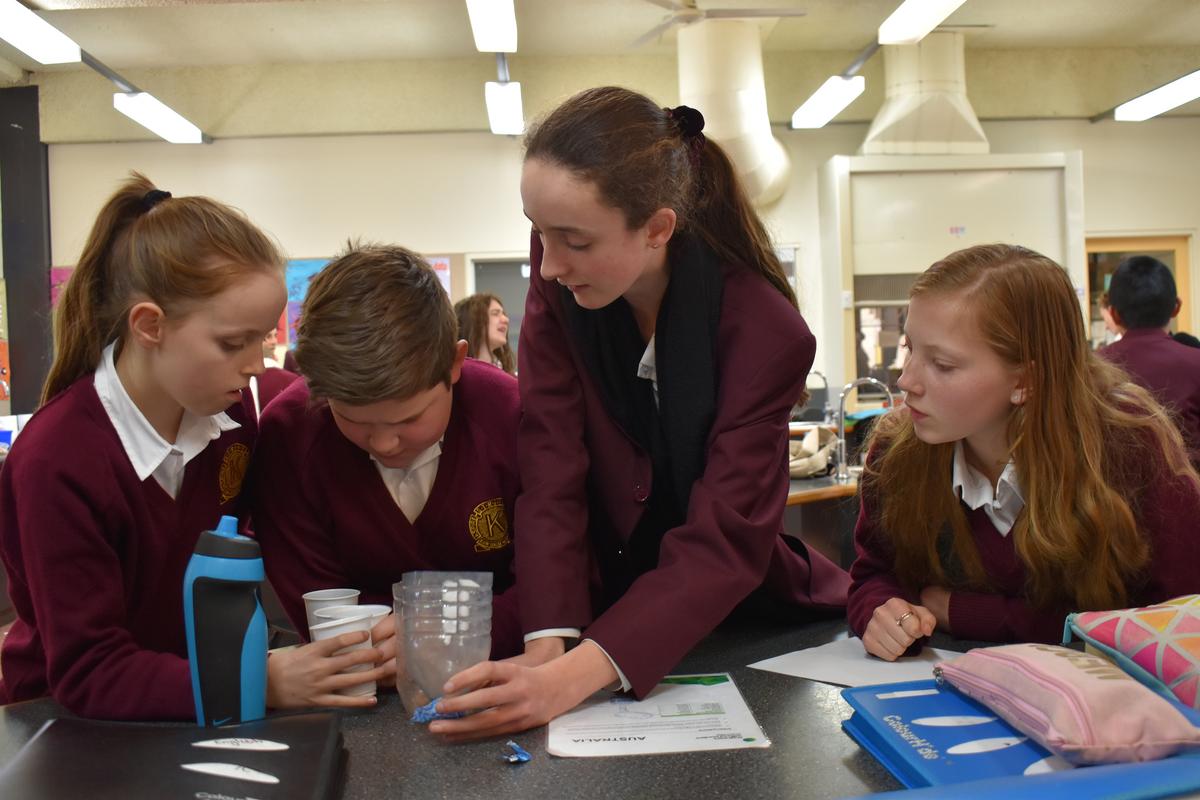ENGINEERS WITHOUT BORDERS
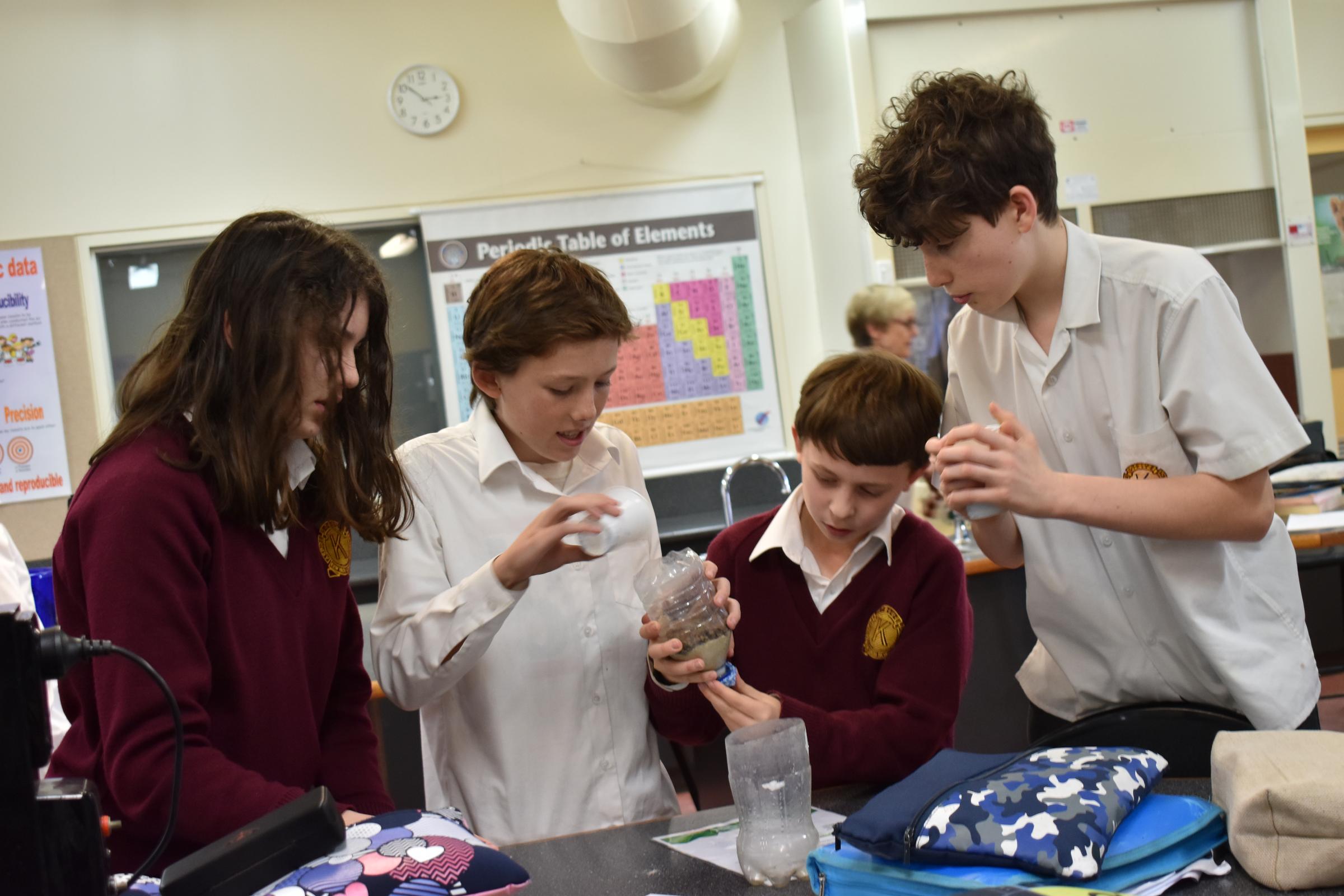
Water Filtration
Over the first week in August, we were lucky enough to have all our Year 7 Science classes participate in a workshop run by the Monash University chapter of Engineers Without Borders.
Engineers Without Borders Australia (EWB) is a member-based, community organisation that creates social value through engineering. Through partnership and collaboration, they focus on developing skills, knowledge and appropriate engineering solutions particularly within third world environments. Their School Outreach Program sends teams of trained EWB volunteers into schools to run creative, hands-on workshops designed to open young people’s minds to the challenges facing developing countries. They also highlight career options available to engineers and technical professionals and the power of humanitarian engineering to create positive change.
The workshop, 'Water Filtration' - how we create clean water systems, was based on their Cambodian program and linked to an earlier unit in our school science program, Separating Mixtures. Students were assigned into teams, given a design brief and working within certain resource and budgetary constraints designed and built a simple water purification system.
Read what the students had to say about the experience below.
Today we learnt about different engineers and what different jobs they have, and learnt a lot about other countries that cannot produce as much water as richer countries like Australia. The focus though was different filtration methods, and we had a task, which was making your own filter to make clean water, and you had to gather many materials and you were put in groups and given a certain country with a certain budget. Then you have to buy the materials and make your own filter. It was really fun and encourage you to try it out yourself. – Benjamin Wolff, 7A.
On Tuesday a couple of people from a group called 'Engineers Without Borders', came to Kew High School and talked to our class about different types of engineers and water filters. They told us about four major types of engineers: Mechanical, Chemical, Civil and Electrical. We discussed about what each of the engineers do, study and water filtration. We then talked about homemade water filters and desalination plants, which led into a challenge to create a water filter with limited resources and money. In the challenge, we were split up into small groups and then assigned a country with a certain amount of money to spend on items to create a water filter. We had to think about what materials to use and where, for instance: I put fine substances towards the bottom of the water filtration process and larger substances at the top of the process to maximize the water filter and get the lowest possible Turbidity. “Standard units for turbidity are "nephelometric turbidity units" (NTU's) standardised against Formazin solution.” http://dpipwe.tas.gov.au/water/water-monitoring-and-assessment/water-monitoring/surface-water-quality/water-parameters. Overall, this was a very fun and educational experience and I learnt a lot. – Kyan Robins-Pittock, 7E.
On the 10th of August, 7A had Engineers Without Borders or EWB come in and teach us about what they do, in a fun way. Firstly, they took us through a slide show, showing us the different ways that engineers help people around the world. After that, we did an activity where we took the viewpoint of different countries and looked at how they would filter water, by creating our own filters. We were given the resources, money and skills, similar to the country we were investigating. This helped us understand the task and help us realise the difficulties faced by some countries around the world. This interactive experience helped us all understand the work of engineers and what we can do to help other countries in need. – James Pringle, 7A.
Today we learnt about how engineers in Australia go to other countries and build things such as water filters to help less fortunate people in poorer countries have a better life with safer and cleaner water, food and lifestyle. They showed us how difficult it is for third-world countries to build water filters and how with a little bit of assistance they can build what they need to live a healthy and clean life. – Lachie Slatterley, 7C.
Dianne Keage
Science Teacher
